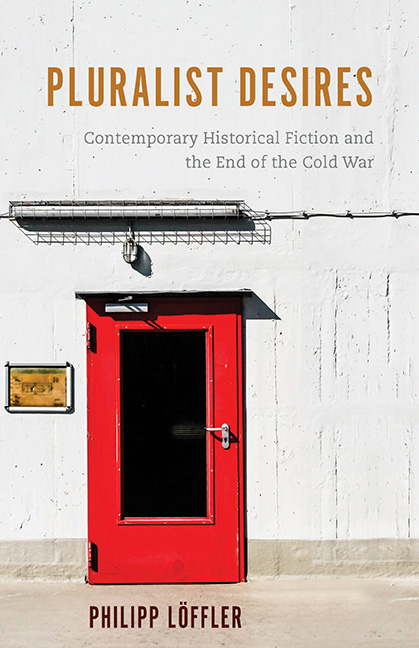Book contents
- Frontmatter
- Contents
- Acknowledgments
- Introduction: Saving Private Ryan, the End of the Cold War, and the Value of Historical Experience
- 1 The Uses of History: From Nineteenth-Century Historicism to Twenty-First-Century Pluralism
- 2 “No Longer and Not Yet”: Don DeLillo and the Aftermath of the Cold War
- 3 After Race: Body Language and Historiography in Toni Morrison's Beloved and A Mercy
- 4 “A Singular Act of Invention”: Storytelling, Pluralism, and Philip Roth's American Trilogy
- 5 Lukácsian Aesthetics, Self-Creation, and Richard Powers's Plowing the Dark
- Epilogue
- Notes
- Bibliography
- Index
Introduction: Saving Private Ryan, the End of the Cold War, and the Value of Historical Experience
Published online by Cambridge University Press: 05 February 2016
- Frontmatter
- Contents
- Acknowledgments
- Introduction: Saving Private Ryan, the End of the Cold War, and the Value of Historical Experience
- 1 The Uses of History: From Nineteenth-Century Historicism to Twenty-First-Century Pluralism
- 2 “No Longer and Not Yet”: Don DeLillo and the Aftermath of the Cold War
- 3 After Race: Body Language and Historiography in Toni Morrison's Beloved and A Mercy
- 4 “A Singular Act of Invention”: Storytelling, Pluralism, and Philip Roth's American Trilogy
- 5 Lukácsian Aesthetics, Self-Creation, and Richard Powers's Plowing the Dark
- Epilogue
- Notes
- Bibliography
- Index
Summary
For those familiar with the Hollywood film industry, Steven Spielberg's Saving Private Ryan (1998) was a predictable movie both in its plot development and in the political nationalism it promotes. The movie features a platoon of American soldiers under the command of Captain John Miller (Tom Hanks) on their way to Ramelle, Normandy, during the days following the American landing on Omaha Beach. The group must locate paratrooper James Francis Ryan, the youngest and only survivor of four brothers fighting in the war, and bring him back home safely to America. The platoon accomplishes the rescue mission—Ryan is eventually shipped back to America—even though Miller, along with four others of his unit, dies, reminding Ryan at the end of the movie that he has to “earn this… Earn it.”
Apart from its obvious political message, Saving Private Ryan can be read not only as an attempt to reencounter American history of the Second World War but also as an articulate statement about cultural production in the post–Cold War period. Though Spielberg himself may never have been conscious of the latter aspect, his movie is so compelling because it links the problem of historical realism to the more general question of historicizing the 1990s and 2000s as a distinct historical period. Saving Private Ryan does that by replacing the idea of historical truth with that of historical experience. The movie says that if we want to find out about what it was like to be fighting in the Second World War, then what we need is feeling, not knowledge. And this idea seems so intriguing because it runs counter to the movie's proclaimed universality—that is, its claim that what it shows is a truthful representation of what really happened, no matter what a potential audience will think or feel about it.
Saving Private Ryan has been widely acclaimed for its historical realism, especially in its minute reconstruction of the events on Omaha Beach. The movie's authentic appropriation of the reality of the Second World War owes much to its twenty-three-minute opening sequence, which was voted “the best battle scene of all time” by Empire magazine. Only loosely connected with the overall narrative of the movie, this scene presents viewers with an intense and detailed reconstruction of the American military arrival in France on June 6, 1944.
- Type
- Chapter
- Information
- Pluralist DesiresContemporary Historical Fiction and the End of the Cold War, pp. 1 - 19Publisher: Boydell & BrewerPrint publication year: 2015



